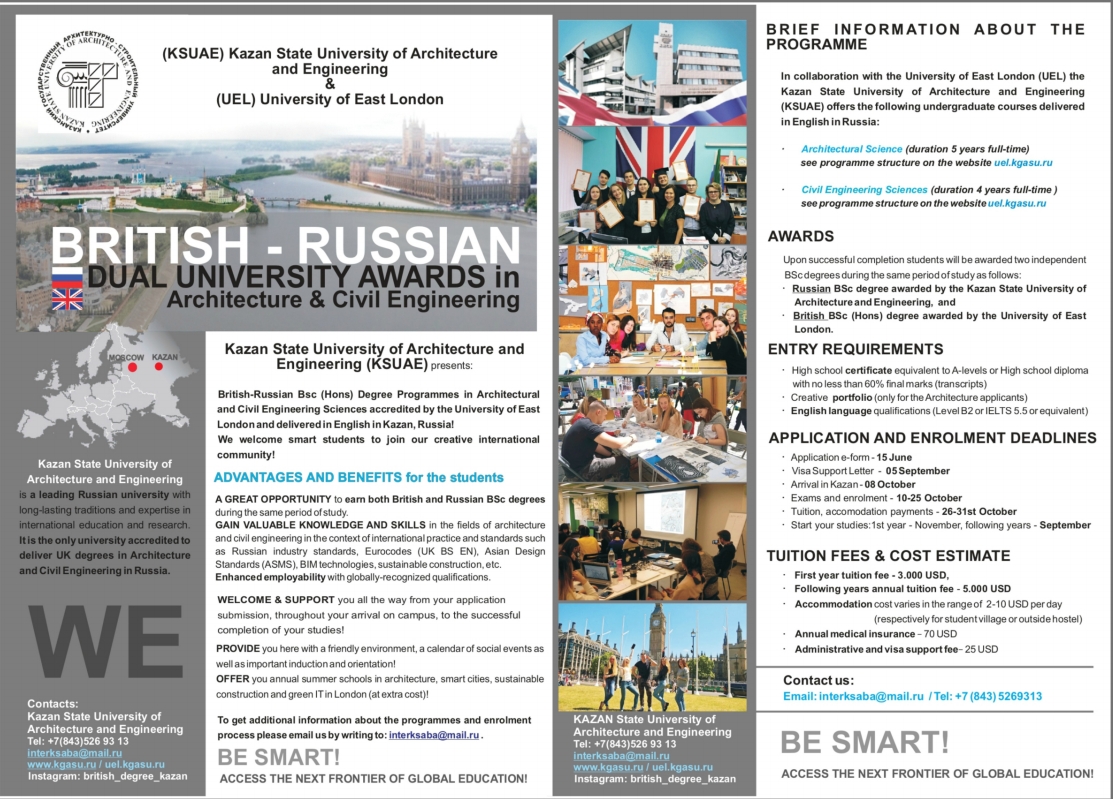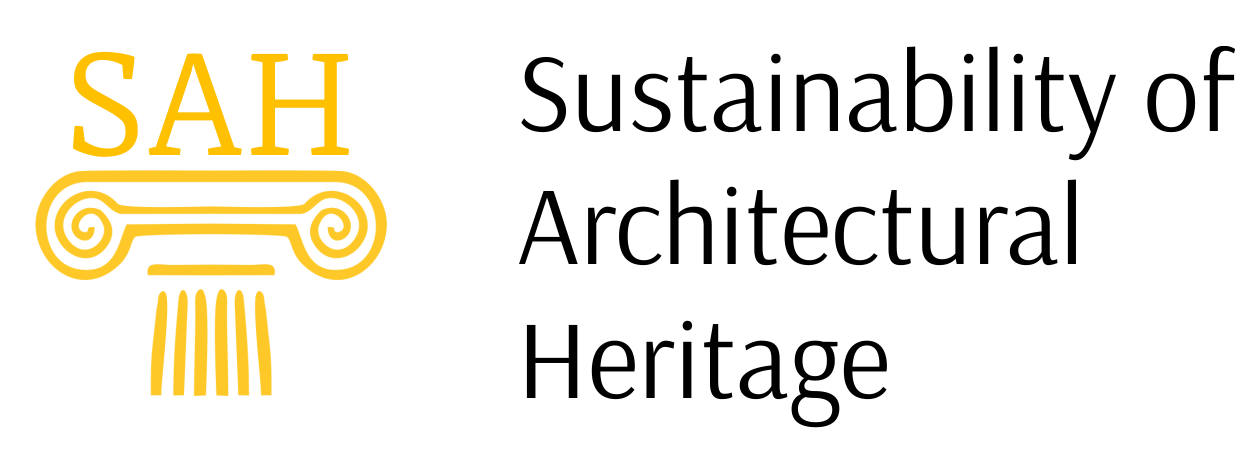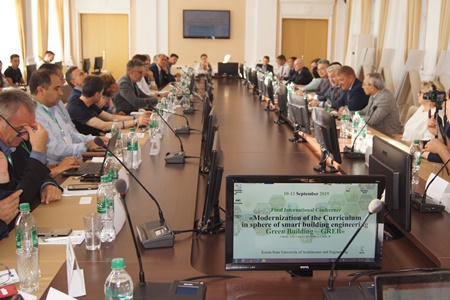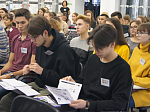Erasmus+ project "Modernization of the Curricula in sphere of smart building engineering - Green Building (GREB)"
The project «Modernization of the Curriculum in sphere of smart building engineering - Green Building (GREB)» was realized within the European Erasmus+ programme, in category Capacity Building in the field of Higher Education, from 2016 till 2019.
Our University participated in the project as a part of the consortium of the following European and non-European universities:
· Madrid Politechnical University, Spain
· Royal Institute of Technology, Sweden
· Construction Cluster of Slovenia, Slovenia
· Salzburg University of Applied Sciences, Austria
· Astrakhan State University Institute of Architecture and Civil Engineering, Russia
· Kazan State University of Architecture and Engineering (KSUAE), Russia
· Moscow State University of Civil Engineering, Russia
· Ogarev Mordovia State University, Russia
· International Public organization of assistance to construction education, Russia
· "Russian Technological Society" LLC, Russia
· National University of Mongolia, Mongolia
· Mongolian University of Science and Technology, Mongolia
· Karakalpak State University, Uzbekistan
· Tashkent University of Information Technologies, Uzbekistan
· Urgench State University, Uzbekistan
Aim of the project: to update and increase the quality of curricula in sphere of information technologies and civil engineering, focusing on High-Tech Green Buildings, in Russian Federation, Mongolia and Uzbekistan, using the experience of five leading European universities in order to meet the needs of sustainable development of a global world.
Goals of the project: :
· Setting of courses in the partner universities, through the training of academic staff, review, tuning and modernization of the existing curricula
· Development and setting of BA&MA programs of engineering practical-oriented education for High-Tech Green Buildings in line with best EU practices
· Creating a Network of Multidisciplinary centers "Green Building", with modern equipment for multipoint video conferencing, and developing students' training and their work in international teams on real-case projects
· Preparation of training materials, textbooks, e-books etc.
· Development of a common vocabulary for future joint diploma programmes
· Creation of an interaction platform of education, science, production and authorities in order to form modern professional competences of specialists responding needs of sustainable society in sphere of Civil Engineering.
GREB activities:
October 2017: Seminar for developing of new curricula
University of L’Aquila is hosting the second GREB seminar, where new curricula for BA and MA are designed in accordance with the ECTS system, together with recommendations elaborated for curricula design and core modules.
April 2018: Seminar on agreement on creation of the Network of Multidisciplinary centers "Green Building" (NGB centre)
The third GREB seminar was hosted in Ljubljana: GREB partner-organization Construction Cluster of Slovenia organizes two days workshops to help each Partner Country’s University to develop the business plan of the NGB centre created thanks to GREB project
May/June 2018: Training of academic staff from Russian Federation, Uzbekistan and Mongolia
European partners of GREB are hosting academic staff of partners from Russia, Uzbekistan and Mongolia to support them in the preparation of new courses developed in the framework of GREB.
April 2019: Seminar of student’s projects, Royal Institute of Technology (Sweden)
The special seminar was held in Stokholm to select the commission for the assessment, approve the students’ thesises evaluation and protection procedure.
September 2019: GREB Final conference in Kazan (Russia)
At the end of the project, official GREB Final Conference was held at Kazan State University of Architecture and Engineering (KSUAE) with the participation of all partners and National and Local authorities.
Results of the project:
After 3 years of development, partner Universities from Russia, Mongolia and Uzbekistan have reached important goal in modernizing their curriculum in sphere of smart building engineering, thanks to GREB!
- For practical implementation of the developed curriculum a special network infrastructure – Network of Multidisciplinary centers “Green Building” was createdand equipped with modern equipment for multi-point video conferencing.
Results of the project for KSUAE:
In terms of the GREB project at KSUAE was established the Center for Engineering Systems in Construction "SYSTEMS". The center is equipped with modern multipoint video conferencing equipment and 3d printer.
In terms of the GREB project at KSUAE were developed tree new approved courses:
· Architectural design for urban agriculture
· Smart BIM in HVAC. Information modeling in Heating and Ventilation Systems
· Advanced Technologies Scouting and Implementation. Smart Building Technologies. Workshop
as well as new textbooks and training materials
Photos http://greb.univaq.it/#pg-528-7 of the project (GREB gallery)




 Final International Conference within the Erasmus+ GREB project "Modernization of the Curricula in sphere of smart building engineering - Green Building"
Final International Conference within the Erasmus+ GREB project "Modernization of the Curricula in sphere of smart building engineering - Green Building" 